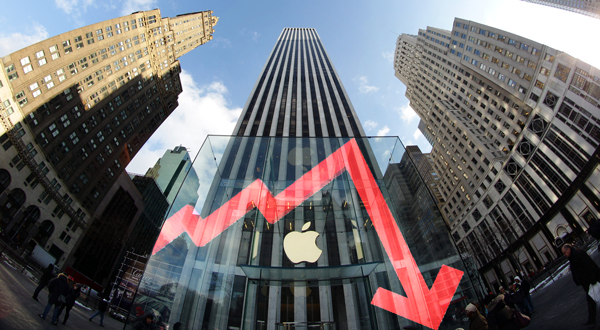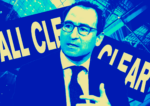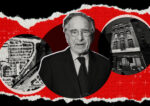Trending
Sales at Apple’s Fifth Avenue store plummet by over $100M
Drop comes amid growing concern over the Manhattan retail market

UPDATED, July 12, 4:09 p.m.: When pessimists gripe that the rise of online retail spells doom for Manhattan’s brick-and-mortar shops, optimists often counter by pointing to Apple’s Store On Fifth Avenue. The famous glass cube has been a phenomenal success, generating billions in revenue and becoming one of the most profitable stores in the world. But newly released numbers, buried in a Fitch Ratings report on the GM Building, should give even the optimists cause for concern.
Gross sales at the store fell by a quarter over the past three years, to $334.7 million in 2016 down from $392.3 million in 2015 and $449.2 million in 2014, according to Fitch. A New York Post report from the height of the recession in 2009 claimed the Cube was pulling in roughly $440 million a year in sales since opening in 2006, though a Bloomberg report said it was closer to $350 million.
The precipitous drop in recent years comes at a bad time for Apple and its landlord, Boston Properties, as they begin work on a $100 million renovation of the space.
Sales at the store fell even as Apple’s overall sales in the Americas rose to $32 billion in the fourth quarter of 2016, up from $29.3 billion a year earlier, according to SEC filings. And they tumbled while New York City saw its economy grow and attracted a record number of tourists last year. In other words: the sales numbers are bad news for Manhattan’s retailers, and by extension retail landlords.
Apple has opened several new stores in New York City since 2014, including one in the World Trade Center’s shopping center and one in Williamsburg, and it’s possible that some of the drop in sales is due to buyers switching to different locations.
In the first quarter, half of Manhattan’s 12 most important retail markets had availability rates of 20 percent or more, according to Cushman & Wakefield, signaling that the Manhattan retail real estate market may be facing a downturn after years of frenzied growth. In April, Ralph Lauren abruptly closed its Fifth Avenue flagship store just four years after signing a 16-year, $400 million lease. It sent shock waves throughout the real estate industry.
“I think retail is fucked, plain and simple,” developer Billy Macklowe said at a conference in April. Walking down Fifth or Madison Avenues, he said, “just on a visual basis, you will get to a radical vacancy rate the major brokerages aren’t putting out there.”
A spokesperson for Apple did not respond to emails seeking confirmation of Fitch’s numbers and a possible explanation for the drop in sales.
Earlier this year, the Apple store temporarily moved into the former FAO Schwarz space next door while its original space is being renovated. Boston Properties agreed to pay for $70 million of the $100 million price tag, according to Fitch. The renovation is expected to be completed by late 2018.
Under the terms of the lease, Boston Properties is entitled to 2.5 percent of Apple’s sales at the store above $200 million, meaning the drop in revenue also hurts its top line. A representative for Boston Properties referred questions to Apple.
(To view Boston Properties’ office leasing transactions, click here)




